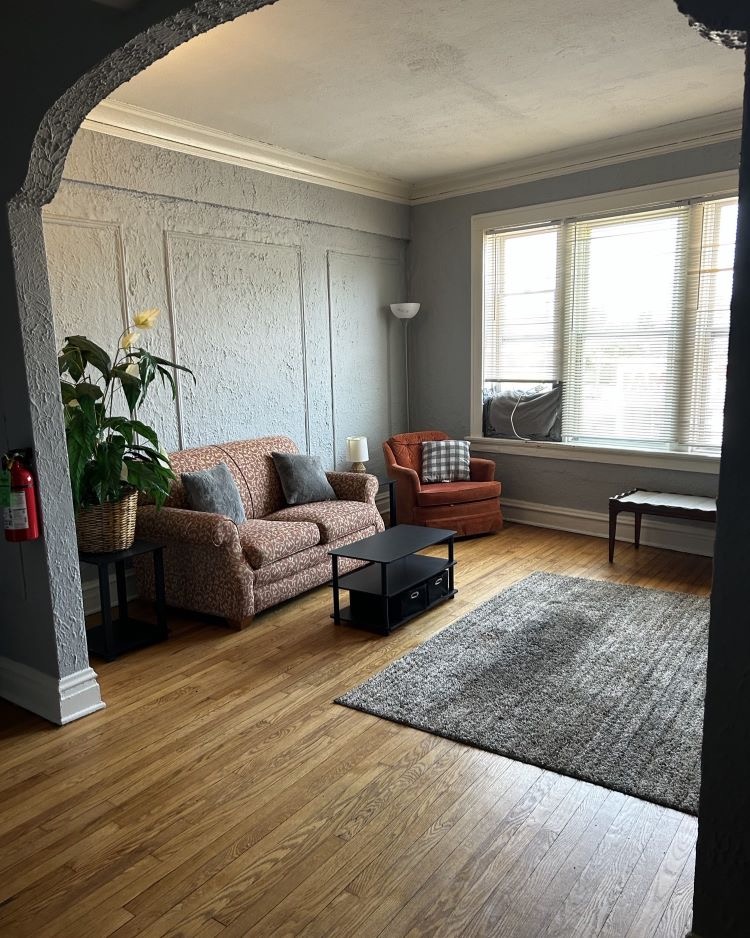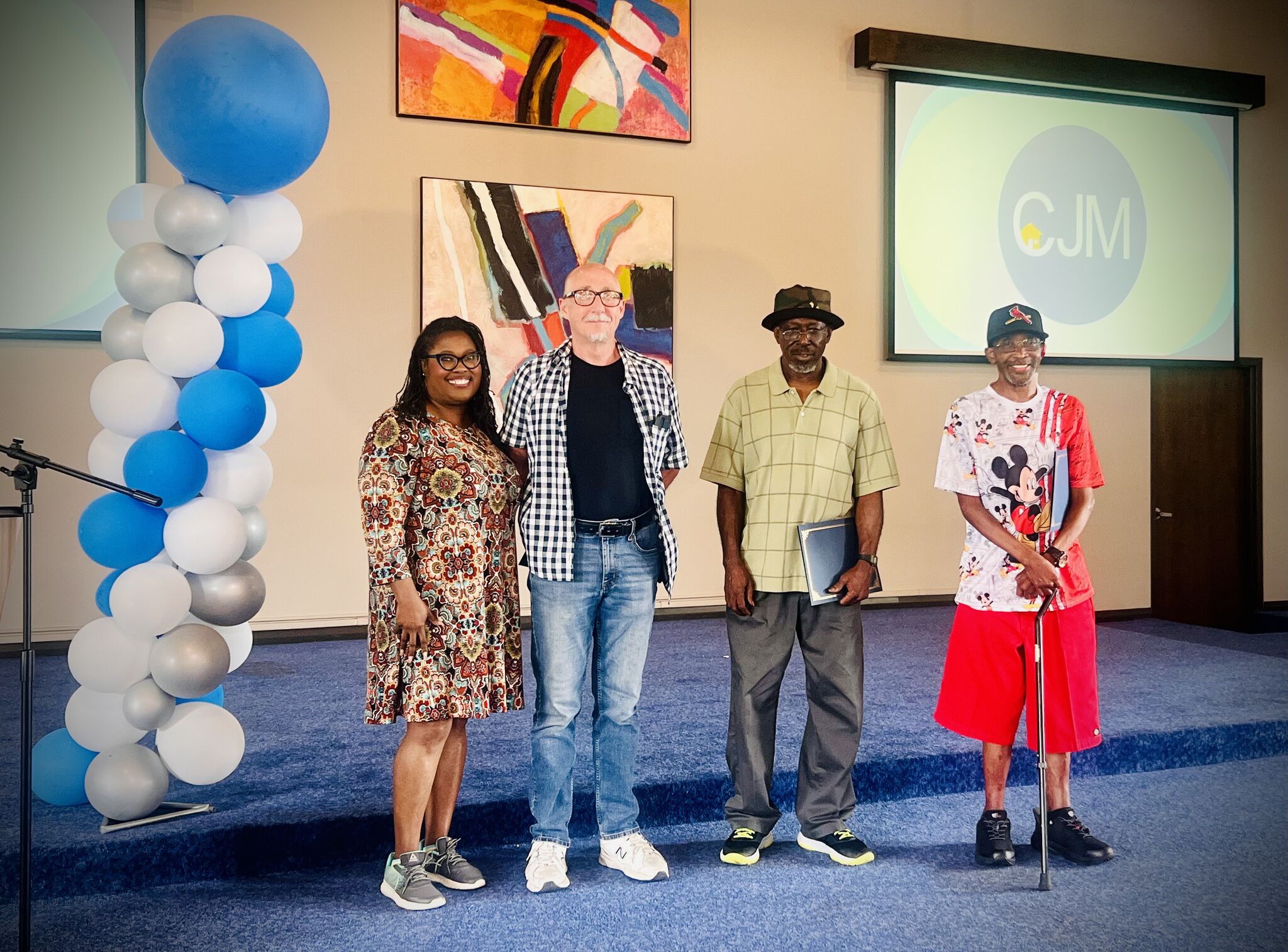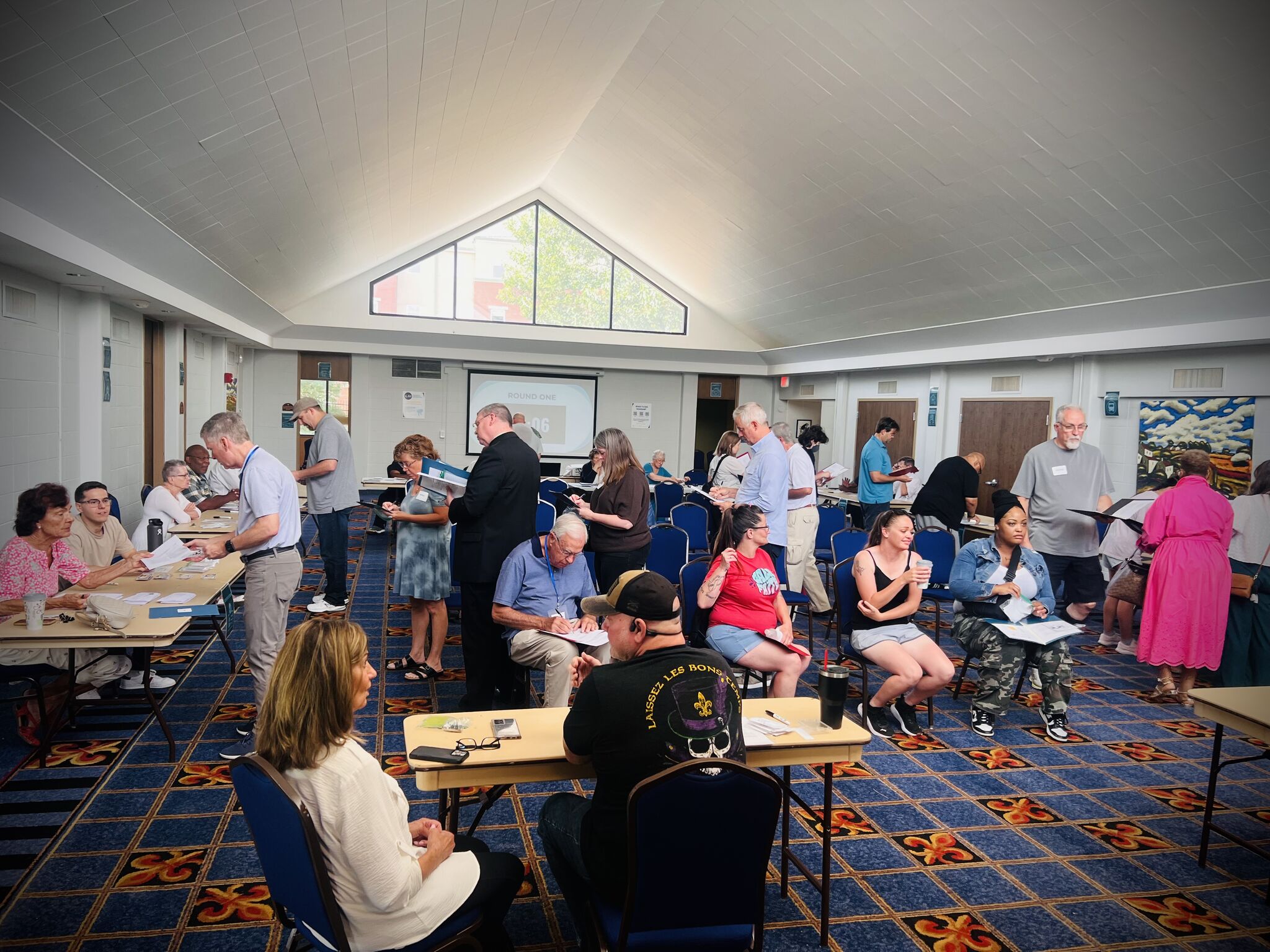Criminal Justice Ministry: Leader in Successful Reentry for Formerly Incarcerated Individuals
Criminal Justice Ministry leads the charge in successful reentry strategy with their Foundations First Housing program.
By Sophia Black, Washington University Gephardt Institute for Civic and Community Engagement 2025 St. Louis Fellow
Criminal Justice Ministry (CJM), is one of the foremost reentry programs for incarcerated individuals in the St. Louis area with over 100 clients per year. Originally founded in 1979 as a Catholic prison ministry, CJM noticed that as mass incarceration began to rise, so did the need for stable housing programs for recently released incarcerated individuals.
With that observation, CJM began to focus on a housing-first model of reentry. Housing instability stands as the first of many barriers to integration into society, holding formerly incarcerated people physically, socially, and financially. CJM sought to change this.
The aptly named Foundations First Housing program, was created in 2003 to act as a stable place for their clients to begin their reentry journey. The program provides clients with housing and additional support during uncertain times. Alongside 112 fully furnished housing units, CJM ensures long-term stability with clothing, transportation support, government benefit assistance, and case management – providing wrap-around support for clients.

One of CJM’s fully furnished apartments. Photo from CJM.
Foundations First Housing is a year-long program that has three subsections of services, one for men, one for women, and one for veterans, as they acknowledge that each experience is different and should be tailored based on their needs. Currently, the program as a whole serves 100 clients.
“Transitioning our clients has been central to our work, even when we were not doing housing,” Shelby Triff, Director of Funding, said. “Criminal justice reform is a multilayered issue, but we at CJM are working to aid in just one piece of the very large pie.”
Clients looking to join the Foundations First Housing program are not excluded based on criminal history. This provides a safety net for people that are often left out of reentry programs. Often working with people who have served 10+ years, the program allows for successful reintegration into society and lowering recidivism rates.
CJM’s success is measured both by how many they serve, and by how their clients thrive once out of prison. Their organization's recidivism rate is about 23%, which is 12% lower than Missouri’s at 35%. Their success is also measured by how long their clients stay in their housing, as about 70% “transition in place,” meaning they fully take over their leases after the program is over.

Graduates of the Foundations First Housing program celebrating their completion of the program. Photo from CJM.
CJM’s Foundations First Housing program is not only an example of innovation, it is also an example of collaboration. Each CJM unit is fully furnished and takes a team of volunteers to help with move-in and set up. Funding from the Community Development Administration (CDA) goes directly to the Foundations First Housing program that allows for new apartment units to be acquired and for direct payments to clients to help with rent throughout the year-long program. For the apartments not acquired through Community Development Block Grant Funds (CDBG) from the CDA, CJM partners with landlords across the City to provide additional housing.
“CDA is proud to support CJM’s work,” Nahuel Fefer, Executive Director of CDA said. “Our mission is to support organizations in their journey to create a more prosperous St. Louis for all.”
Looking towards the future, CJM is looking to expand the amount of clients they serve. Serving this community builds up the St. Louis area. As the more successful those who need it most are, the more successful everyone is. Ultimately, CJM’s goal is to be the leading reentry housing provider in the region, offering a guide to other nonprofits that their method is successful.
CJM is also looking to integrate reentry simulations into their program for the wider St. Louis community. These simulations provide a look for non-incarcerated groups to really see the barriers that people face when coming out of prison.
They are hands-on learning experience that immerses participants in the complex realities of reentering society after incarceration. Designed for community members, students, and professionals in housing, healthcare, education, law, social services, or government, the Reentry simulation offers a powerful opportunity to step into the shoes of someone navigating systemic barriers to stability, employment, and support. The events can build empathy and help inform professionals' policy or practice by growing their understanding.

Members of the St. Louis community engage in one of CJM’s Reentry Simulations. Photo from CJM.
“It takes the full wrap-around service we provide to give people the space they need to heal and make some new choices,” Triff said. “Any one of us in their situation could fall back into old habits. Our reentry simulation is supposed to model the real-life barriers our clients face and how the system often sets them up to fail.”
Breaking the cycle of incarceration one home at a time, CJM is leading the charge to a safer and healthier St. Louis for all.
About the Community Development Administration (CDA): The CDA serves as the City of St. Louis' hub for federal, state, and local funds, implementing the Mayor's economic justice agenda. By funding public and nonprofit entities, the CDA supports a wide range of initiatives, including public services, affordable housing development, blight eradication, and other community development activities.
-
Contact Information:
Tom Nagel
Public Information Officer II -
Department:
Community Development Administration
-
Topic:
Community Facilities
Education and Training
Employment, Jobs, and Careers
Housing
Legal Assistance
Law, Safety, and Justice
Temporary Housing
Related Stories
Help Us Improve This Page
Did you notice an error? Is there information that you expected to find on this page, but didn't? Let us know below, and we'll work on it.
Feedback is anonymous.